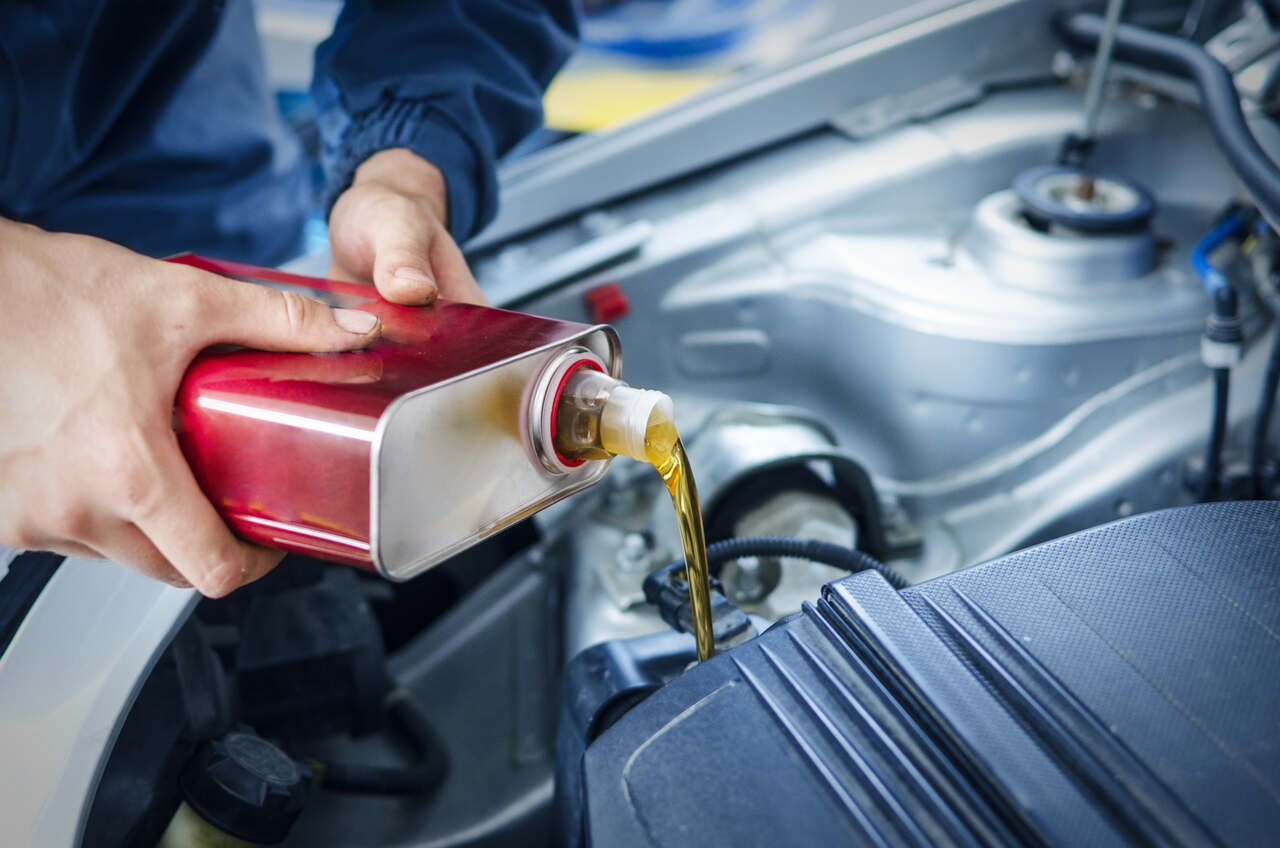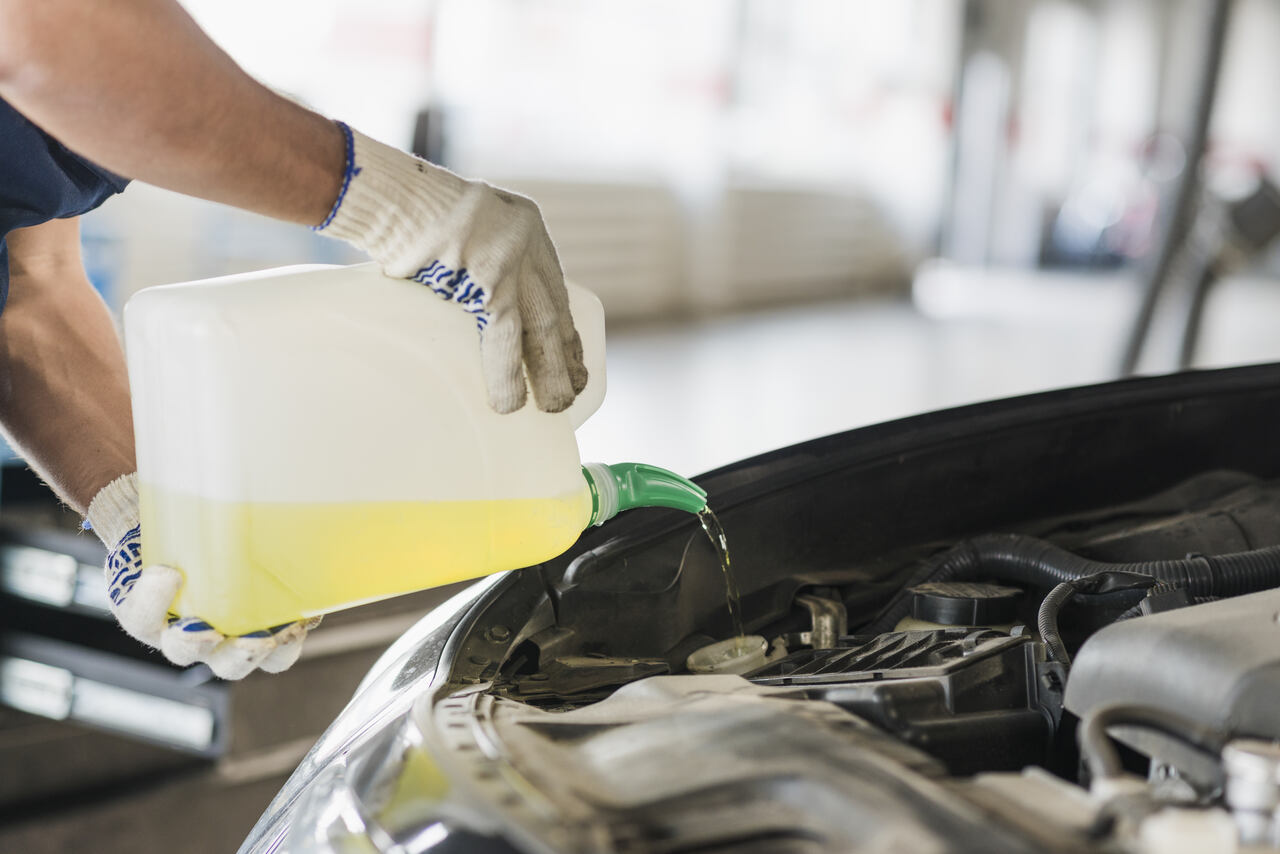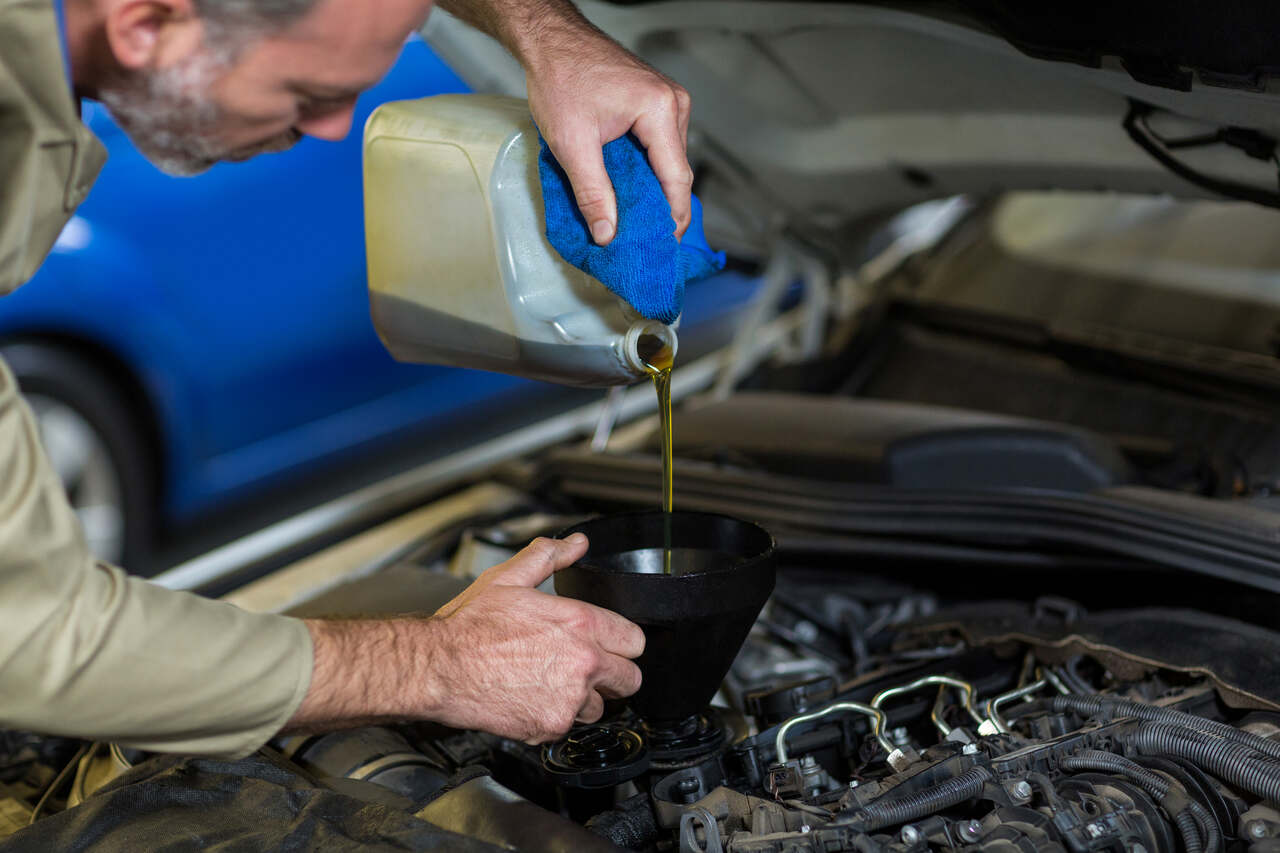Regularly changing your car's oil is essential for the longevity and performance of your vehicle. Here are some key benefits:

1. Improved Engine Performance: Fresh oil helps lubricate the engine components, reducing friction and allowing them to move smoothly. This improves overall engine performance and efficiency.
2. Improved Fuel Economy: By reducing friction, regular oil changes can help improve your car's fuel economy. This can save you money on gas in the long run.
3. Prevents Engine Wear: Over time, engine oil can break down and become contaminated with dirt, debris, and other harmful particles. Regular oil changes help remove these contaminants, preventing engine wear and extending the life of your engine.
4. Cooling and Cleaning: Oil not only lubricates the engine but also helps in cooling and cleaning it. Fresh oil absorbs heat from the engine, preventing it from overheating. It also carries away dirt and deposits, keeping the engine clean and running smoothly.
5. Improved Resale Value: Regular maintenance, including oil changes, can help maintain the value of your car. When it comes time to sell or trade-in your vehicle, a well-maintained engine with regular oil changes can increase its resale value.
Best Oil for Your Car

Choosing the right oil for your car is crucial for optimal performance and engine protection. Here are some factors to consider when selecting the best oil:
1. Viscosity: Oil viscosity determines the thickness and flow rate of the oil. Check your car's owner manual or consult a professional to determine the correct viscosity for your vehicle.
2. Synthetic vs. Conventional: Synthetic oils offer superior engine protection and performance compared to conventional oils. While synthetic oils are generally more expensive, they provide better resistance to heat, oxidation, and sludge buildup.
3. Oil Additives: Some oils come with additional additives that provide extra protection for your engine. These additives can include detergents, antioxidants, and friction modifiers. Consider your car's specific needs and consult the manufacturer's recommendations.
4. Brand and Quality: Stick to reputable oil brands that meet industry standards. Low-quality oils may not provide adequate lubrication or protection, potentially damaging your engine in the long run.
Step-by-Step Oil Change

Performing an oil change is a simple process that can be done at home or by a professional mechanic. Here is a step-by-step guide:
1. Gather the Necessary Tools and Supplies: You will need a wrench, oil filter wrench, drain pan, new oil filter, new oil, funnel, and gloves.
2. Elevate Your Vehicle: Use a car jack to lift your vehicle off the ground and place it securely on jack stands. Ensure you are working on a level surface.
3. Locate the Drain Plug and Oil Filter: Consult your car's owner manual to find the location of the drain plug and oil filter. Position the drain pan beneath the drain plug.
4. Drain the Old Oil: Unscrew the drain plug using a wrench and allow the old oil to drain completely into the pan. Once drained, replace the drain plug tightly.
5. Replace the Oil Filter: Using an oil filter wrench, remove the old oil filter. Apply a thin layer of new oil to the rubber gasket of the new oil filter and screw it on firmly by hand.
6. Add New Oil: Remove the oil cap on the top of the engine and insert a funnel. Pour the recommended amount of new oil into the engine, following your car manufacturer's specifications.
7. Check the Oil Level: After adding the new oil, wait a few minutes for it to settle, then use the dipstick to check the oil level. Ensure it is within the recommended range.
8. Dispose of Old Oil Properly: Store the old oil in a sealed container and take it to a recycling center or an auto parts store that accepts used oil for proper disposal.
Car Oil Change Guide

Here is a comprehensive guide to help you navigate the process of changing your car's oil:
1. Oil Change Interval: Refer to your car's owner manual to determine the recommended oil change interval. Typically, it is advised to change your oil every 3,000 to 5,000 miles or every three to six months.
2. Prepare for the Oil Change: Assemble all the necessary tools and supplies beforehand, ensuring you have the correct type and amount of oil for your car.
3. Safety First: Before getting under your car, make sure it is on a level surface, the engine is cool, and the parking brake is engaged. Use jack stands to secure the vehicle.
4. Warm Up the Engine: Start your car and let it run for a few minutes to warm up the oil. Warm oil flows better, making it easier to drain.
5. Locate the Drain Plug: Use your car's owner manual to find the location of the drain plug. Position the drain pan under the plug to collect the old oil.
6. Drain the Old Oil: Carefully remove the drain plug using a wrench and allow the old oil to drain completely. Be cautious as the oil may be hot.
7. Replace the Oil Filter: Using an oil filter wrench, remove the old oil filter and replace it with a new one. Apply a thin layer of new oil on the rubber gasket of the new filter.
8. Add New Oil: Remove the oil cap and insert a funnel. Pour the recommended amount and type of new oil into the engine, avoiding overfilling.
9. Check the Oil Level: After adding the new oil, use the dipstick to check the oil level. If necessary, add more oil until it reaches the recommended range.
10. Inspect for Leaks: Start the engine and let it run for a few minutes. Inspect for any signs of leaks around the drain plug and oil filter. If you notice anything, tighten the affected area or seek professional assistance.
11. Dispose of Old Oil Safely: Store the old oil in a sealed container and take it to a recycling center or an auto parts store that accepts used oil for proper disposal.
12. Reset the Oil Change Reminder: If your car has an oil change reminder, follow the manufacturer's instructions to reset it.
13. Keep a Record: Maintain a record of each oil change, including the date, mileage, and type of oil used. This will help you stay on track with regular maintenance.
How Service My Car Assists You?
Have you reached a point where you're questioning, "Where can I find the top garage in Bolton for my car?" Look no further. At Service My Car, we provide premium car servicing, repair, and maintenance services, always within your reach. With specialized service offerings for the car and comprehensive service packages, we ensure the collection and drop-off of your vehicle following its maintenance.
Conclusion
Regularly changing your car's oil is vital for sustaining its performance and protecting the engine from unnecessary wear. By following this guide and adhering to your car manufacturer's recommendations, you can ensure that your vehicle continues to run smoothly for years to come.

